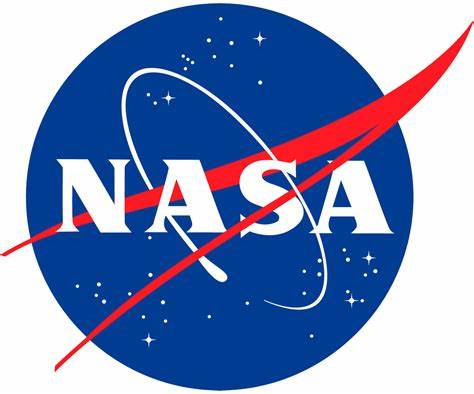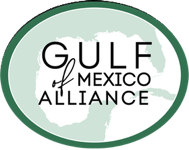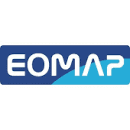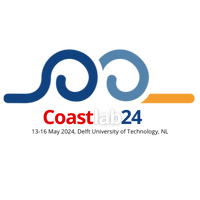| October 26, November 2, & November 9, 2023 11:00-12:00 (Session A) or 15:00-16:00 (Session B) EDT (UTC-4) This training will provide an overview of spectral indices for land and aquatic applications. Specifically, this training will begin with an introduction to the Normalized Difference Vegetation Index (NDVI), along with its calculation, uses, and prominence in Earth science. In session two, we will expand to other spectral indices primarily used in aquatic ecosystems, such as the Normalized Difference Chlorophyll Index (NDCI), Normalized Difference Aquatic Vegetation Index (NDAVI), Floating Algal Index (FAI), and Normalized Difference Turbidity Index (NDTI) for aquatic applications. In the final session we will review additional land-based indices such as the Enhanced Vegetation Index (EVI), Soil-Adjusted Vegetation Index (SAVI), and Normalized Burn Ratio (NBR). Not only will these sessions discuss the correct circumstances under which to use these indices, but participants will also take part in hands-on indices calculation over relevant study areas. Learners will work with data from Landsat 9 OLI-2, Sentinel-2 MSI and Harmonized Landsat Sentinel-2 (HLS) for indices calculation. The training will also discuss pre-calculated index products such as Terra MODIS vegetation indices and HLS vegetation indices suite and upcoming data products available based on user feedback provided to the Satellite Needs Working Group. Use cases from recent Earth Action projects (such as NASA DEVELOP) will further highlight how spectral indices can provide essential information about land and aquatic environments.
|
Category: Uncategorized
GEO AquaWatch co-chairing Satellite Tools session at GOMCON 2024
Are you a researcher developing satellite tools for assessment of water quality and/or submerged aquatic vegetation monitoring to inform decision-making? Consider submitting an abstract to the session Advances in Satellite Imagery as a Synergistic Tool for Scientific Research and Policy-making in Coastal Habitats in the Gulf of Mexico Alliance’s GOMCON 2024 in Tampa? It can be found under the Advances and Priorities for Data Management theme at this link: https://lnkd.in/e9aVPvsv
We welcome posters and talk abstract submissions from all educational and career levels. Selected scientific presentations will focus on the implementation of remote sensing imagery for informing operational decision making. Abstracts and registration are now being accepted – so please join us in Tampa next February 19-24, 2024!
Key Dates:
October 13, 2023 – Abstract Submission Deadline
Jan 12, 2024 – Early Bird Registration Ends
Feb 16, 2024 – Regular Registration Ends (onsite registration is still possible)
Session Chair: Megan Coffer, GST, NOAA and GEO AquaWatch
Co-chairs: Session co-chairs: Mark Finkbeiner (NOAA/GISP), Stacie Flood (South Florida Water Management District), Lawrence Handley (USGS), Catherine Lockwood (CNLWorld), Merrie Beth Neely (GST, NOAA and GEO AquaWatch)
Job Opportunity: US-based Senior Scientist Ocean Color, remote possible
Senior Scientist to Support Satellite Oceanography and Climatology and Ocean Color , College Park, MD
This position is only open to qualified US citizens or those possessing a green card. The position can be remote.
Global Science &Technology, Inc. (GST), a fast growing high technology firm is seeking mid to senior scientists for an exciting task at the Satellite Oceanography and Climatology Division at NOAA’s Center for Satellite Technology Applications and Research (STAR). This task involves broad research and application activities for ocean color remote sensing including algorithm development, testing, evaluation, and validation. Selected candidates shall work with the project leader and other members in STAR and other NOAA offices for some (or all) of the specific tasks provided below.
Duties:
- Review ocean color related documents to study and understand ocean color remote sensing theory, algorithm, and applications; an understanding of instrument calibration is highly desirable.
- Development and applications of satellite algorithms for water properties, e.g., algorithms for biological and biogeochemical properties, IOPs, PFT, etc.
- Become familiar and work with the ocean color data processing system for research and algorithm development, e.g., SeaDAS, MSL12, ADL, for the data processing, data displaying, and data analyses for various satellite data sets (e.g., VIIRS, MODIS, OLCI on Sentinel-3, SGLI on GCOM-C, MSI on Sentinel-2, LandSat, PACE, etc.).
- Work with other non-ocean color satellite sensor data (for atmosphere and land purposes), e.g., CALIPSO data, for developing and testing new approaches for remote sensing of ocean properties.
- Support the identification and resolution of shortfalls in existing open ocean algorithms for application to coastal regions and identification of new applications and products from satellite measurements specifically for coastal and inland water applications.
- Analyze simulated and real satellite data, as well as various in situ data from ocean color and atmosphere to evaluate and improve related algorithm performance.
- Contribute documentation related to the project and publish scientific papers.
Education/Experience Required:
- Ph.D. in Oceanography, Physics, Computer Science, and/or other Physical Sciences and Engineering. Previous work experience is required.
- A strong record of publications in peer-reviewed journals.
- Strong working knowledge of remote sensing algorithms. Understanding of satellite instrument calibration will be a plus.
EOMAP job opportunities
Earth Observation is fascinating, and so are aquatic environments. If you share our fascination and love to dive deep into #geospatial topics, please apply now!
EOMAP crosslinks technological innovation with sustainable solutions for our planet. EOMAP’s focus is on satellite-based mapping and monitoring of coastal and inland waters.
Let’s pick a few things to share in advance:




Learn more about this #joboffer on our website: https://www.eomap.com
Coastlab24 Abstract deadline extension, Delft Netherlands May 2024
Coastlab24 has decided to extend the abstract submission deadline by 4 weeks to 29 September 2023. High level innovative contributions on modelling and measurements in coastal science and engineering are therefore still welcomed.
CoastLab is a conference whose focus is on Physical Modelling in Coastal Engineering and Science.
Coastlab24 builds on the success of previous conferences in Porto (2006), Bari (2008), Barcelona (2010), Ghent (2012), Varna (2014), Ottawa (2016), Santander (2018) and Zhoushan (2020). CoastLab 2024 is organized under the auspices of the International Association of Hydro-Environment Engineering and Research (IAHR).
It will be hosted by Bas Hofland, Delft University of Technology.
We are proud to announce that Coastlab24 will be held in Delft, on 13-16 May 2024. Since the foundation of Deltares in 1929 as a spin-off from Delft University of Technology, high-level physical modelling in coastal engineering has been conducted in Delft. So it is fitting that the leading conference focusing on physical modelling in coastal engineering will visit Delft.
The nice town of Delft is an ideal location to spend a nice week during the conference, and the Netherlands has a large range of interesting coastal engineering projects to show as well. More information on the conference will be posted in the coming months. You can sign up to receive alerts for these updates.





